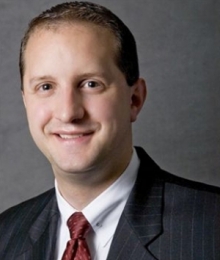Professional Responsibility
Course Information
- Course Number
- L6274
- Curriculum Level
- Upperclass
- Areas of Study
- Legal Profession and Professional Responsibility
- Type
- Lecture
- Additional Attributes
- PR Requirement, LLM NY Bar Exam Qualifier
Section 001 Information
Instructor
 Michael Louis Fox
Adjunct Associate Professor of Law
Michael Louis Fox
Adjunct Associate Professor of Law
Section Description
This course satisfies the J.D. Professional Responsibility requirement.
Not open to students who have taken another two- or three-credit professional responsibility course
Our course will focus on professional responsibility questions that typically arise in practice, and examine the extent to which the application of ethical principles varies by context. The course is designed for students regardless of where they intend to work after graduation. Generally, the topics to be covered include the attorney-client relationship, conflicts (concurrent and successive), ethics in advocacy, representing organizations, negotiations and transactional matters, fees, multi-jurisdictional practice, consequences of professional failures (e.g. discipline, civil liability, forfeiture or disgorgement of fees, reputational damage), admission to the bar, and the ethical rules for eDiscovery and social media as they pertain to attorneys, judges and even jurors.
To be taught by Professor Michael Fox.
Method of Evaluation:
100% - Final Exam
The professor reserves the right, however, to adjust final grades due to substantive class participation, or excessive absences.
This course also satisfies the LL.M. Professional Responsibility requirement for the California bar.
- School Year & Semester
- Fall 2023
- Points
- 2
- Method of Evaluation
- Exam
- J.D Writing Credit?
- Minor (upon consultation)
- Writing Credit Note
- Minor Writing Credit available upon consultation with Professor
Learning Outcomes
- Primary
-
- At the end of the course, students will have acquired understanding of and/or facility in a specific body of law, including major policy concerns surrounding ethical guidance and proscriptions.
- At the end of the course, students will have acquired understanding of and/or facility in ethical and professional issues and problem-solving.
- At the end of the course, students will have acquired facility in various lawyering skills, for example, oral communication, evaluation of ethical rules in the face of troubling fact patterns, and assessment of real world ethical situations.
- At the end of the course, students will be conversant in the ethical rules governing activity in the electronic world, including ethics in eDiscovery, and ethical use of social media to collect evidence, contact witnesses & parties, and research jurors.
Course Limitations
- Instructor Pre-requisites
- None
- Instructor Co-Requisites
- None
- Requires Permission
- No
- Recommended Courses
- None
- Other Limitations
- None


